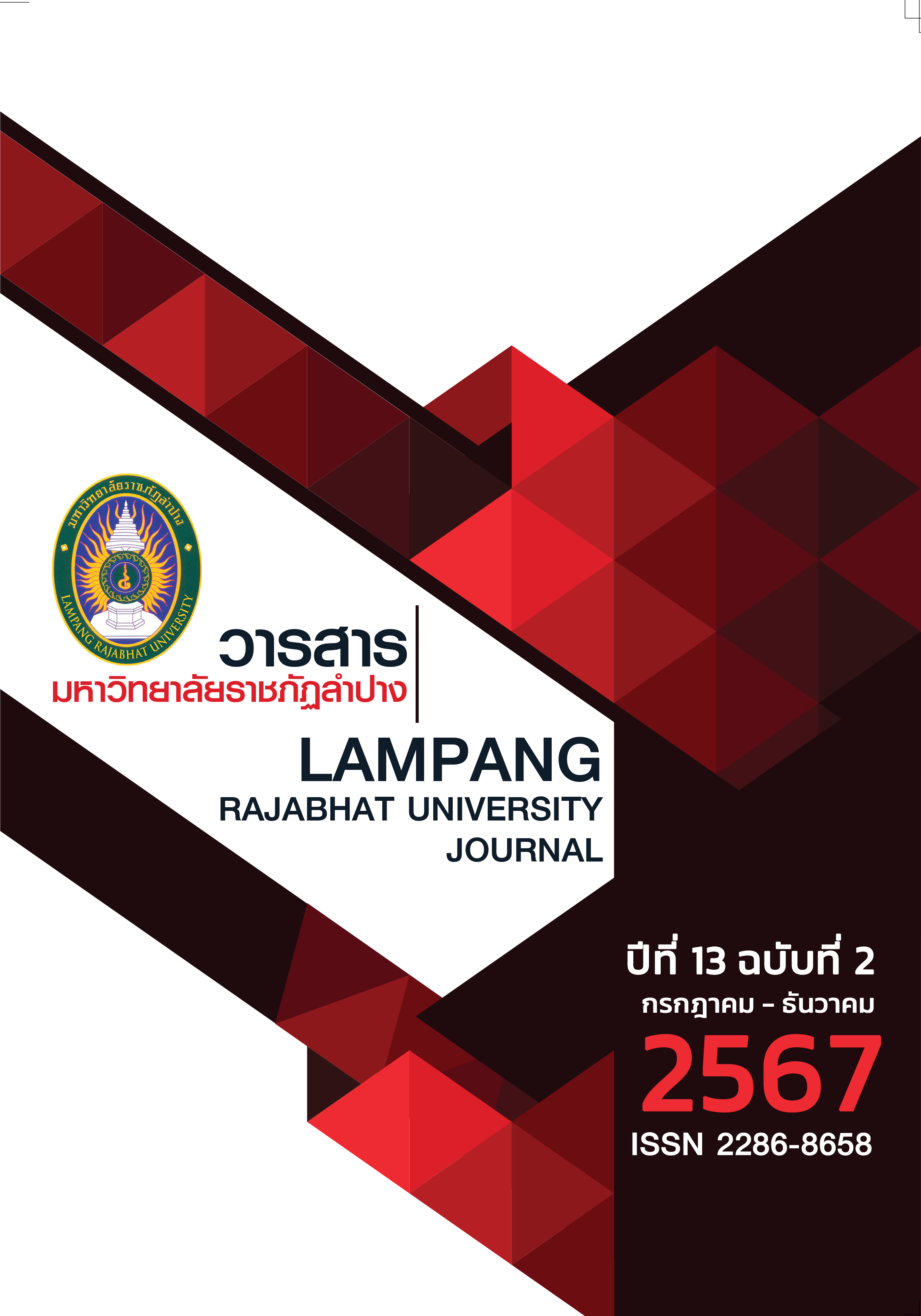การพัฒนาเครื่องมือประเมินสมรรถนะวิชาชีพครูพลศึกษา สถาบันพลศึกษา วิทยาเขตอุดรธานี
คำสำคัญ:
Physical Education Teachers, Professional Competency Assessment Tool for Teachersบทคัดย่อ
The objectives of this research were to develop and assess the quality of a professional competency assessment tool for physical education teachers at the Institute of Physical Education, Udon Thani Campus. The study sample was divided into two groups: Group 1 consisted of 76 fifth-year physical education students who assessed the quality of the tool, including its reliability, internal consistency, discriminatory power, and content validity. Group 2 consisted of 73 fourth-year physical education students and 48 fourth-year sports science students who determined the content validity. The research instrument was a situational judgment test developed by the researcher, comprising three response options. The statistical analysis included an independent t-test, with statistical significance set at the .05 level. The results found that students in the teacher education program scored significantly higher on the professional competency assessment tool than those not in the program, with a significance level of .05. Additionally, fifth-year teacher education students scored significantly higher on the competency assessment tool than fourth-year students at the .05 level. However, no significant difference was found between the two groups for the attributes of responsibility sharing and encouraging creativity.
เอกสารอ้างอิง
Chen, L. Y. (2021). Research on the current status of professional competency training for primary and secondary school physicaleducation teachers in Fujian Province. Physical education Science Research, 25(3), 74-79.
Fang, L. (2020). Research on the competency structure of middle school physical and health education teachers: Based on the "General Middle School Physical and Health Curriculum Standard (2017 Edition). Doctoral dissertation, Jiangxi Normal University.
Fengmin, G., Nirantranon W. and Hongsaenyatham, P. (2023). International Journal of Sociologies and Anthropologies Science Reviews (IJSASR), 3(5), 403-420.
Gourneau, B. (2019). Aspects of receptivity and defensiveness in teaching English as a foreign language. International Journal of Education and Language Studies, 03(04), 61-72, doi:10.47832/2791-9323.4-3.5.
Krejcie, R. V., & Morgan, D. W. (1970). Determining sample size for research activities. Educational and Psychological Measurement, 30(3), 607–610. https://doi.org/10.1177/001316447003000308
Ma, Z. M., and Li, X. L. (2020). Based on the National Excellent Physical Education Observation Course Examining the Research on the Teaching Competencies of Middle School Physical Education Teachers. Journal of Ningxia University (Humanities & Social Sciences Edition), 42(5), 158.
Nirantranon, W., and Nirantranon, S. (2018). The direction of physical education teacher production over the next 15 years (B.E. 2551–2565). Retrieved from http://www.ipeud.ac.th/images/pulldown_1222762749/b.pdf
Office of the Permanent Secretary of Education. (2020). The progressive nature of the National Education Act. Retrieved from http://gphone.prd.go.th
Thailand Development Research Institute Foundation. (2023). Developing strategies for basic education reform to ensure accountability. Retrieved from http://tdri.or.th/wpcontent/uploads/2014/03/Final-Paper.pdf
Tul, M., Leskosek, B., and Kovac, M. (2019). The professional competences of physical education teachers from north-eastern Italy. CEPS Journal, 9(1), 103-120.
Wang, J., and Chen, J. (2023). Research on Constraints and Alleviation Paths of Youth Physical Health Promotion in the Perspective of a Sports Power Country. International Journal of New Developments in Education, 5(21), 115-120.
Zhang, et al. (2021). Research on the professional development path of physicaleducation teachers under the background of rural revitalization strategy. Contemporary sports technology, 11(13), 243-246
Zhien, et al. (2019). The model of professional competence development in future PhysicalEducation teachers at an entrepreneurial university. Education, 40(31), 7-13.
ดาวน์โหลด
เผยแพร่แล้ว
รูปแบบการอ้างอิง
ฉบับ
ประเภทบทความ
สัญญาอนุญาต
ลิขสิทธิ์ (c) 2024 วารสารมหาวิทยาลัยราชภัฏลำปาง

อนุญาตภายใต้เงื่อนไข Creative Commons Attribution-NonCommercial-NoDerivatives 4.0 International License.
บทความลิขสิทธิ์ของวารสารมหาวิทยาลัยราชภัฎลำปาง






